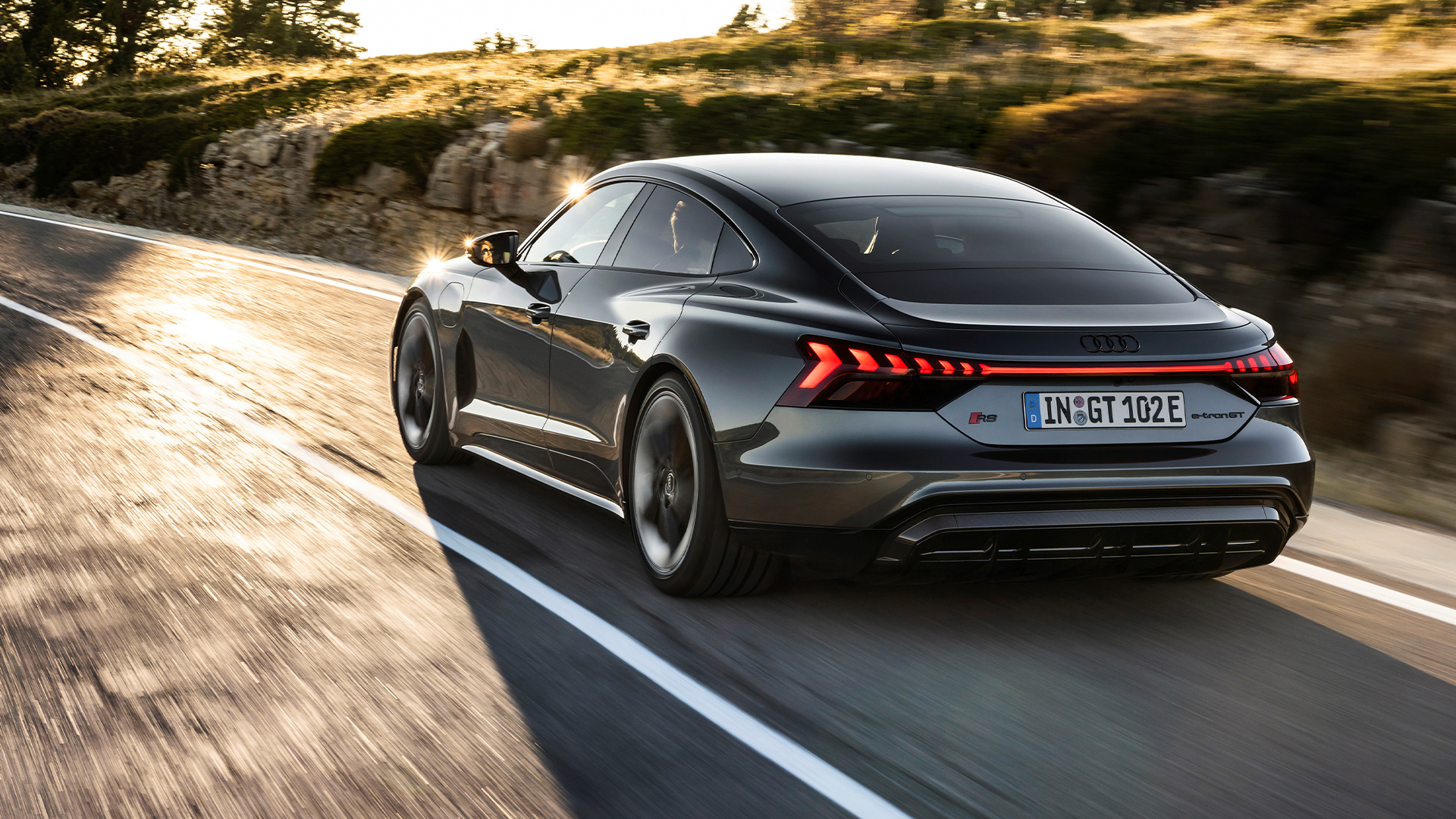

The idea of a GT car is that it’s supposed to be good at two things: luxury and long-distance driving. You should be able to enjoy the performance of the car throughout a road trip that, somehow, is always implied to be through the curving coastal roads of the French Riviera. In the right hands, it should be able to bang it ’round Le Mans just as elegantly. It’s a pretentious, European view of automotive sexiness; the sophisticated but old-school cocktail of the idea that a car should provide freedom and empowerment, so long as you can afford it.
Which is all a load of romantic nonsense, frankly, because GT cars are, outside endurance racing’s very specific categories, fairly poorly defined. It tends to depend on what feels like a GT car. It’s bigger and more luxurious than a hot hatch but more luxuriously designed to be in than a supercar. It’s got a sense of achievement about it but it should also be achievable, as a dream car, without becoming a TikTok influencer. And there’s never really been an electric one because to combine power and luxury in that nebulous feel of a grand tourer hasn’t really been compatible with battery tech up to this point.

Audi hopes to have cracked the code, though, with its E-Tron GT. Perhaps more fittingly, though, the car’s high-performance RS variant with 637 hp.
There are plenty of battery-powered supercars. The Rimac Concept One, the Pininfarina Battista, NIO’s EP9—it doesn’t matter that they’re not huge on range at full power because, y’know, who buys a supercar for anything less than wild performance? They’re absurd, luxury pieces full of bleeding-edge tech and they’ve got the “is-that-even-a-real-car” aesthetic that makes super and hypercars cool.
What makes GT cars cool is something totally different. They don’t have to scream “look at me, I’m rammed to the fenders with more tech than CES,” or even necessarily look like they’re there explicitly to frighten other cars off the road. They’re meant to be performance cars that are driven, not saved for a few blistering hours at a track day to enjoy their full performance.
In theory, there’s no barrier to that with EVs; after all, they have that lovely torque and it’s much easier to make a luxury one than try and get down to a cheap hatchback price point. The problem, as with all EVs, is the range. Grand tourers, as cars, are basically the mid-life crisis answer to an eighteenth-century gap year and that means going places.
Thing is, probably no one really looks at the range of an internal combustion-engined GT car. A Mercedes-AMG GT-R gets 20 miles per gallon of fuel, which with slightly less than 20 gallons in the tank gives it about 400 miles of range. Customers essentially never consider that because bluntly, what the hell are you doing taking a two-door track car on a road trip unless you’re literally a Formula 1 driver who’s contractually obligated to do so?
The range is implicit in a GT car’s name and it’s immediately under suspicion if that car’s electric—rightly so since it’s still the most obvious limitation to EVs.
So can you make an electric GT car without it being an egregious misnomer or at best, a luxury coupe that’s invited you on a city break? Audi thinks so. The E-Tron GT is meant to be the car that has it all: exciting, race car-tested performance technology but that living-the-good-life comfort feel that’s the mark of a grand tourer.


The range, it has to be said, does not seem to be there on paper. Audi claims an EPA estimate of 232 miles for the RS, which is far short of that magic 400-mile mark. At 93.4 kilowatt-hours of juice, it could offer a few surprises in real-world testing but it’s way off that of the Model S, if a bit better than the Taycan’s hotly debated range figure. Audi also says it can recharge from five to 80 percent in just over 20 minutes using a 270-kW fast charger, though those aren’t always handy when driving through the countryside.
The Tesla and the Taycan get talked about as GT cars, probably because it’s fun to put an EV in your list of the best in any given year. But realistically, Tesla will cut your power if you take the Model S on a track day and the Taycan is fun and all but even on a good day, it falls just short of 300 miles.
Audi itself is definitely playing up the “GT cars are race cars” aspect of this new E-Tron, too. This was proven by a stunt where it nearly got out-dragged by Audi’s Formula E car, as well as the fact that it was first seen at the 24 Hours of Spa, a race where anything short of a V10 usually gets booed like a defeated gladiator. If the eventual range isn’t totally off, then the E-Tron looks like a GT car.
It’s all-wheel-drive, it’s got fancy brake balancing, it’s wide and low and maybe, in the inexact science of what counts as a GT, that’s enough. Audi has to be confident that this has the feel of a GT car, something it has extensive decades of Vorsprung Durch Technik-ing into life—or else they’d have called it the track edition or something less likely to set them up to be compared to rivals’ AMGs and 911s, rather than their EQAs or Taycans.

Got a tip? Send us a note: tips@thedrive.com